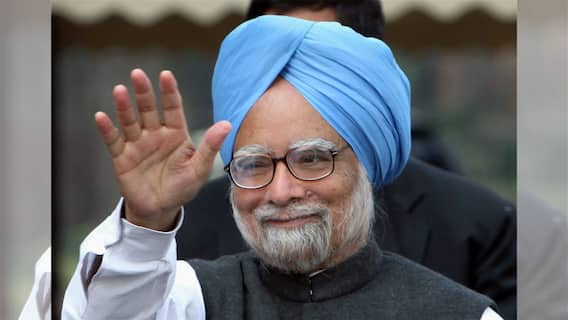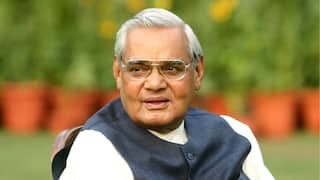Know About The Benefits Of Plant-Based Food And How It Helps In Sustainability
Plant-based food has enough intakes of fibre and the vitamins and minerals found in fruits and vegetables, such as folate, vitamin C, and potassium, all of which are essential for overall health.

New Delhi: A plant-based diet focuses on foods originating from plants. Fruit, vegetables, grains, pulses, legumes, nuts, and meat alternatives such as soy products can all fall under this category. They are also likely to have enough intakes of fibre and the vitamins and minerals found in fruits and vegetables, such as folate, vitamin C, and potassium, all of which are essential for overall health.
Health Benefits of Plant Protein:
Plant proteins have been gaining popularity for all good reasons. Here are some important health benefits linked with consuming plant proteins shared by Niharika Nahata, Clinical Nutritionist and Health Coach at Fast&Up:
Nutritionally dense: Plant foods that are rich in proteins are also naturally rich in other essential nutrients such as fibre, vitamin C, vitamin B9, vitamin E, magnesium, calcium, and potassium, as well as phytochemicals. All these nutrients play key roles in supporting overall health.
Gastrointestinal health: Plant foods that are rich in protein are typically high in fibre – an essential factor for good gut health. Adequate fibre intake has been linked with better digestion and regular bowel movements. Not only this but high fibre intake is also associated with better gut flora, i.e., fibre promotes the growth of beneficial gut micro-organisms, suppressing the growth of bad bacteria. This will, in turn, create a healthy gut microbiome, and will reduce the risk of gastrointestinal disorders like constipation, diverticulosis, etc. Adding to this, a healthy gut microbiome has been associated with weight management and healthy cardiac health too.
Reduces risk of chronic diseases: Plant protein consumption has been linked with a lower risk of chronic diseases, including diabetes, and certain forms of cancer – breast, colorectal and prostate. Plant protein sources include lentils & legumes, nuts, whole grains, etc - all of these have been found to improve metabolism, and metabolic markers and therefore, provide better long-term health outcomes.
Cardiac health: Plant foods are naturally cholesterol free, and low in saturated fats. These are essential for optimal cardiac health, thereby reducing the chances of cardiovascular diseases. Also, numerous studies are showing that the high fibre content of plant foods helps lower blood pressure too.
Diabetes regulation: Researches suggest that plant proteins can be beneficial for people with diabetes. High fibre along with proteins can promote satiety and facilitate the slow release of glucose into the system, thus, controlling blood sugar levels.
Kidney health: Studies are emerging that show that consumption of plant proteins has been associated with a lower risk of developing kidney disease. Moreover, people consuming plant-based foods have less chance of getting kidney stones in comparison to those consuming animal foods regularly.
Weight management: Plant-based protein sources are naturally low in calories and saturated fats (provided you cook them in healthy ways) compared to animal proteins. Being high in fibre, they also offer satiety, giving you a sense of control over your appetite – all of which can contribute to weight management.
Environmental impact: Plant proteins have a lower environmental footprint as compared to animal proteins, thereby emerging as the most sort after sources in the coming times.
Though plant proteins offer a plethora of health benefits, not all the sources have all the essential amino acids required by our body. Hence, it’s advisable to eat balanced meals, including a variety of food sources, i.e., mixing different, plant protein sources, throughout the day to ensure you receive all the essential amino acids that are vital for your well-being.
Are Plant-Based Food Suitable For All?
How Plant-Based Food Offer A Sustainable Alternative:
Plant-based foods offer a sustainable and environmentally-friendly alternative to conventional products that can help safeguard both the environment and our health. People are increasingly seeking out natural products, and the growth in plant-based foods demonstrates just how effective these products are.
Mr Shammi Agarwal, the Director, of Pansari Group, said, "Millets are a prime example of this since climate change has made cultivation of wheat and grain difficult, thus millets provide the same nutrients as other grains while preserving a healthy attitude to our ecology. People are becoming increasingly concerned about the impacts of a non-vegetarian diet as the number of ailments increases. However, plant-based products are often lower in saturated fats and cholesterol, and higher in fibre and other essential nutrients, making them a healthier option for individuals. By incorporating more plant-based foods into our diets, we can not only reduce our environmental impact but also improve our overall health and well-being."
Starting with small changes to create a healthy habit, there are many ways to make the transition to a more plant-based diet and help safeguard both the environment and ourselves.
In this regard, Dr Mickey Mehta, Global Leading Holistic Health Guru/ Corporate Life Coach said, "Transitioning to a plant-based diet can reduce carbon footprints, combat climate change, and promote human well-being as they introduce fewer toxins to our bodies while providing essential nutrients and fostering a beneficial gut microbiome that aids in managing health issues."
"Fibre, antioxidants, and nutrients from whole foods allow our cells to thrive, ensuring a secure and healthy state. Thus, adopting a clean and green diet not only benefits the environment but also nourishes our bodies, minds, and souls, infusing us with positivity and vitality for a better life," he further added.
Trending News
Top Headlines






































